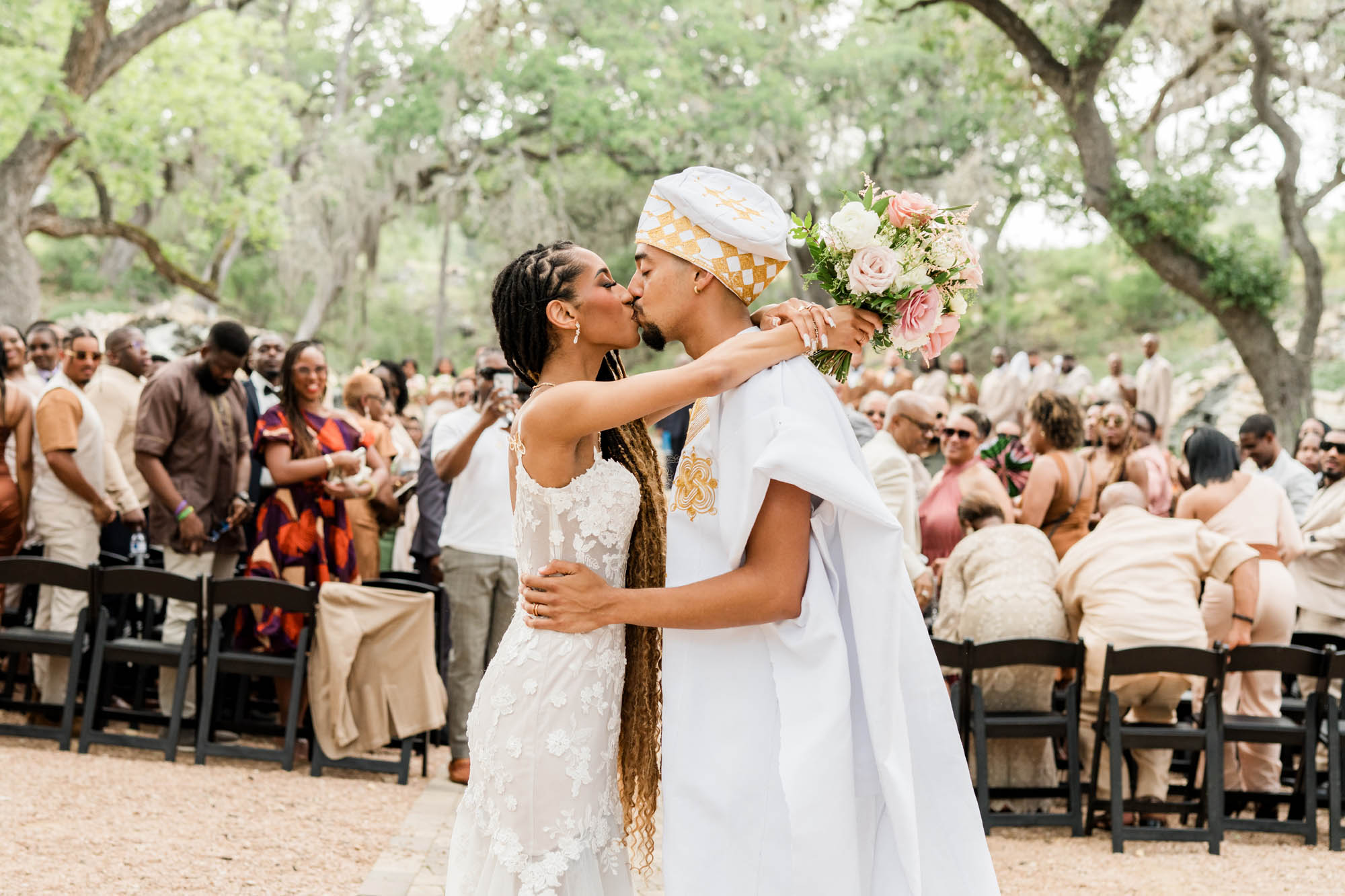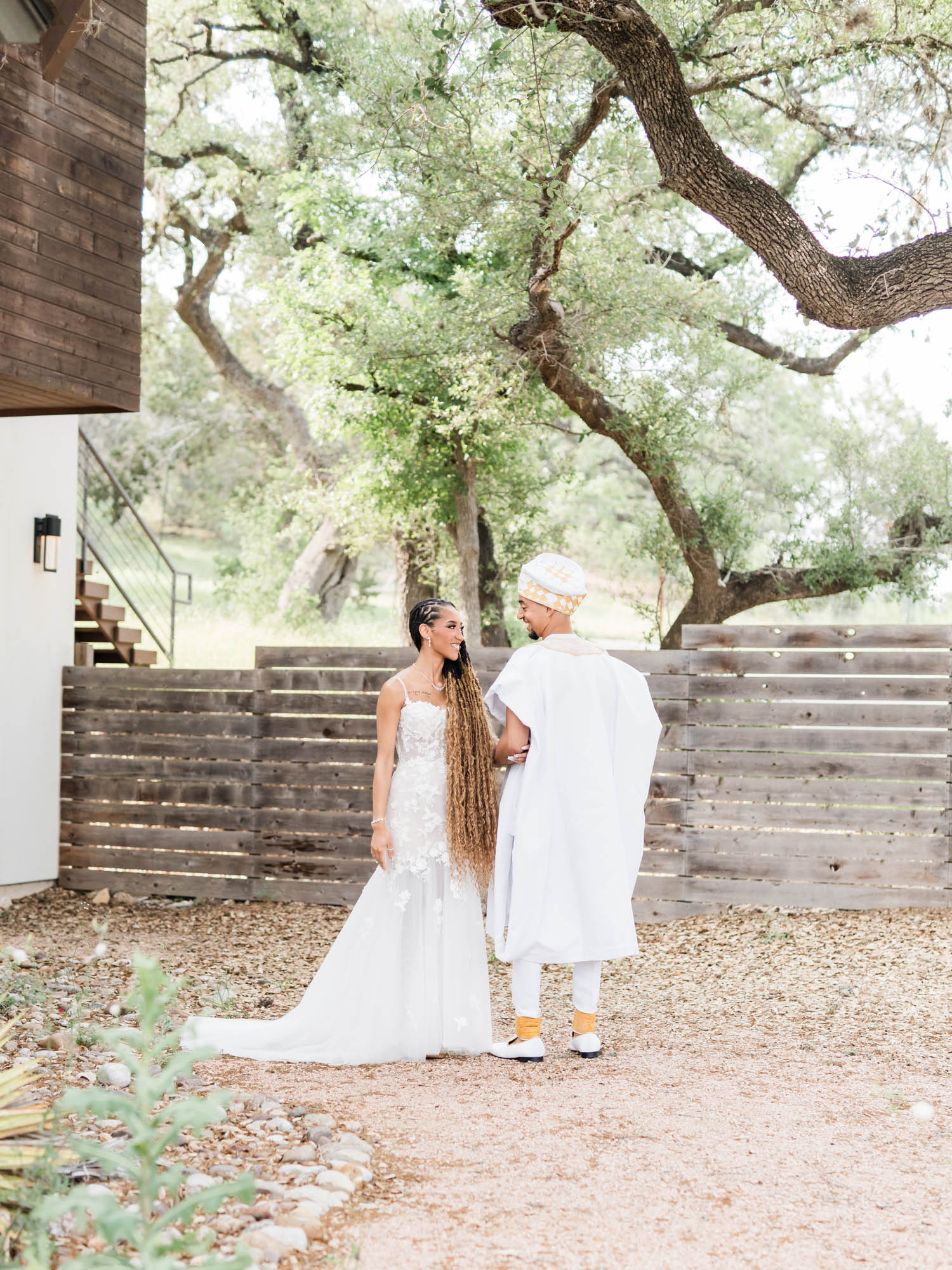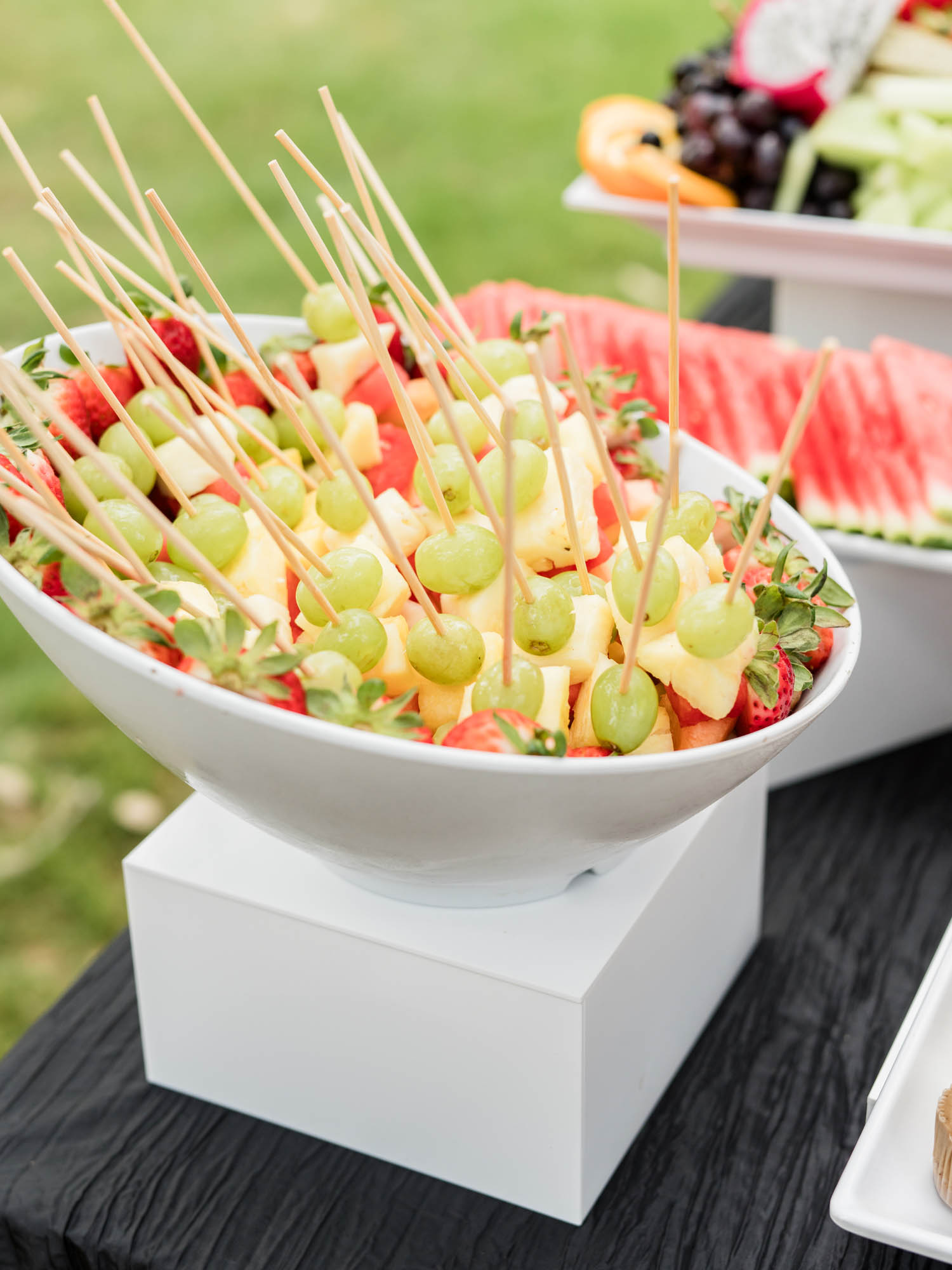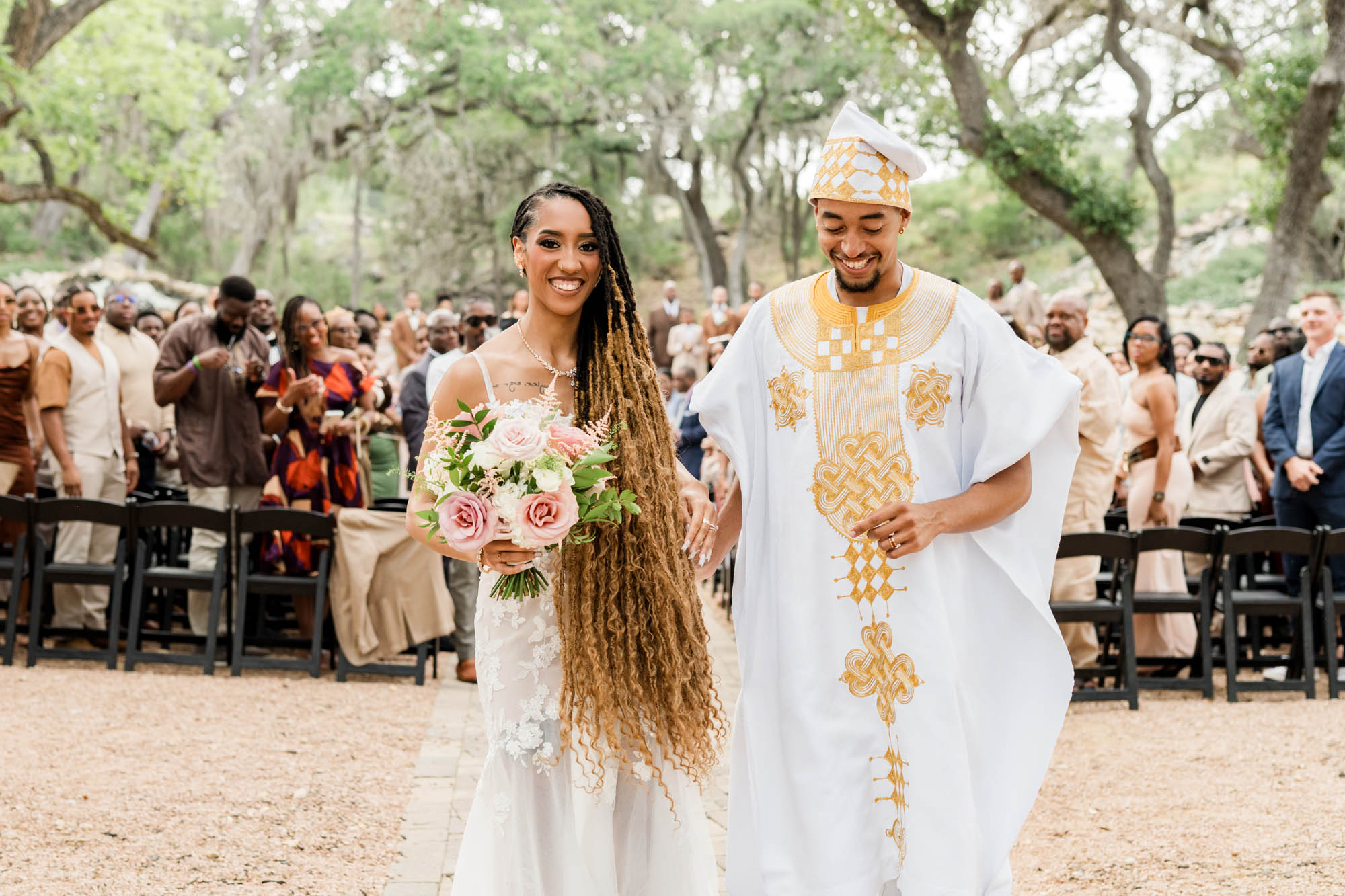Wedding Planning Made Easy: 9 Time-Saving Tips From Our Experts
From engagement to the big day, planning an average wedding takes about 12 hours a week, according to a study that looked at couples’ behaviors. Considering that it takes about a year to plan a traditional wedding, this translates to about 624 hours dedicated to organizing every detail of your special day. That’s no surprise. There are so many decisions to make, after all — from booking your wedding venue to creating your seating charts and everything in between.
But it doesn’t have to be this time-consuming. Yes, it’s entirely possible to plan a stress-free wedding that doesn’t take up every minute of your free time. Just ask our Wedding Planners, who live and breathe weddings, and know every time-saving trick in the book. Here, they share some of their tried-and-true tips for tackling a daunting to-do list, getting organized, and delegating the right tasks to the right people.


Love blooms at Hayes Hollow: Celebrating a beautiful union amidst the enchanting backdrop of Hidden Falls.
1. Go All-Inclusive and Find Your Dream Team
At the risk of stating the obvious, selecting an all-inclusive venue that handles just about every wedding-related detail — from catering to stationery to floral arrangements — is truly the best way to save hours upon hours of planning and coordination. All-inclusive wedding venues like Walters Wedding Estates already have a team of trusted vendors at the ready — best-in-class professionals who know our venues inside-out and are committed to bringing your innermost dreams to life. “Our experienced team is dedicated to delivering a seamless experience, guiding you every step of the way with expert insights tailored to your unique vision,” Walters Wedding Planners say.
2. Create a Realistic Timeline
Early on in the wedding-planning process, you’ll have to make a big decision: setting the date. Your wedding date will determine exactly how much time you’ll have to devote to the planning process — so make sure you give yourself lots of breathing room. From there, you can begin mapping out your timeline. “Start by breaking the planning down into phases — engagement, venue selection, vendor booking, and final details,” Walters Wedding Planners say. “This approach prevents you and your partner from getting overwhelmed and keeps everything organized.”




3. Set Achievable Goals
No matter how far into the future you set your wedding date, your lifestyle (and your partner’s) will ultimately come into play. How many hours can you realistically devote to your wedding per day or week — while still enjoying some downtime? Setting achievable goals for each phase of your timeline will help you manage expectations by allowing you to plan every detail according to your availability. “It also helps you stay focused and motivated, and provides you with a sense of accomplishment as you check off tasks,” Walters Wedding Planners say.
4. Share Tasks With Your Partner
It should go without saying, but involving your soon-to-be spouse is one of the best ways to make more meaningful (and potentially faster) decisions that feel true to who you are as a couple. Stay aligned on goals, deadlines, and responsibilities by setting up shared documents, sheets, and messaging groups that keep track of guest lists, vendor details, and budget that you can both access and update in real time. By working together, you can share responsibilities and tackle tasks more efficiently — not to mention, create opportunities to bond before your big day.
5. Take Advantage of Project-Management Tools
Thankfully, there’s a myriad of project-management apps and tools to lighten the load of your to-do list — or at the very least, help you keep track of it. Leveraging digital platforms simplifies the planning process by breaking it down into digestible daily, weekly, and monthly tasks — with a countdown to your big day. Some even let you sort through vendors, track payments and spending, manage guest lists, and so much more. As counterintuitive as it sounds, in order to save time, you’ll need to spend a little time researching the various available options and find what’s right for you. If all else fails, a simple binder and notebook will do the trick!
6. Delegate, Delegate, Delegate
The most important thing to remember about your wedding-planning journey? You don’t have to go at it alone. “Involving friends and family not only reduces stress but also strengthens your connections, making your special day even more memorable,” Walters Wedding Planners say. Instead of stretching yourself in too many directions, determine what details are a priority and whether some pieces can be delegated. For example, assembling invitations — that is, stuffing, stamping, and addressing envelopes — can be handed off to a family member. Task your most organized friend to track RSVPs and meal choices, and turn certain activities like creating favors into a fun get-together with your nearest and dearest.




7. Don’t Forget About Downtime
Forcing yourself to be productive during your downtime will ultimately cost you time. That’s right. Planning a grand, once-in-a-lifetime celebration is not just about the physical labor — it’s about the cognitive and emotional labor, too. “Prioritize self-care by scheduling downtime for you and your partner amidst the planning,” Walters Wedding Planners say. “Regular breaks will keep you refreshed and maintain your enthusiasm for the journey.” When you commit to giving your brain the break it needs, you’ll ultimately return to wedding-planning sharper and more focused than ever before.
8. Practice Good Communication Habits
When it comes to planning your nuptials, effective communication is one of the most important skills you’ll need to practice — and it’s also one that’s often overlooked. Clear communication helps you make sure that everyone involved in your wedding — from your planning team and vendors to your guests and wedding party — is on the same page. This saves you time in the long run by reducing any misunderstandings and unnecessary back-and-forth. “Couples can streamline their communication by scheduling regular check-ins, such as weekly or biweekly meetings, to discuss progress, address concerns, and make decisions together,” Walters Wedding Planners say.
9. Create A Dedicated Wedding Website
What’s the wedding attire? When’s the rehearsal dinner? Where’s the cocktail hour? The closer you get to your wedding day, the more questions you’ll likely have to field from guests and family members. Responding to every one of them is time-consuming. A wedding website, on the other hand, can provide guests with all the information they need in one convenient place. “By consolidating essential information, such as event details, travel arrangements, and accommodation options, couples can ensure that guests have easy access to everything they need,” Walters Wedding Planners say. Even better if your website offers online invitation and RSVP functionality, which will make guest management a breeze.


